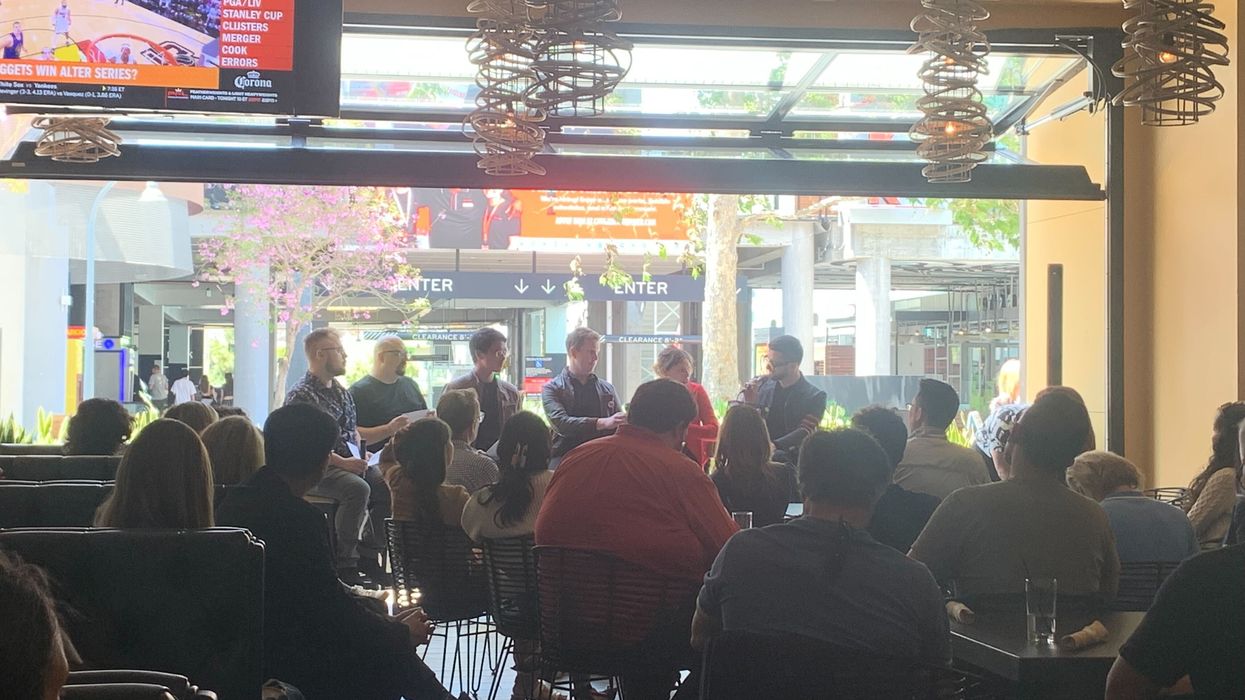LA Tech Week: Could AI Make the Art History Degree Relevant Again?
Kristin Snyder is dot.LA's 2022/23 Editorial Fellow. She previously interned with Tiger Oak Media and led the arts section for UCLA's Daily Bruin.

This is the web version of dot.LA’s daily newsletter. Sign up to get the latest news on Southern California’s tech, startup and venture capital scene.
Digital marketing agencies have already had to upend their practices to keep up with TikTok’s swift trend cycle. Now, they’re facing another challenge: AI.
On Thursday, marketing experts and AI founders gathered in Playa Vista to discuss how the emerging technology will disrupt the industry.
Benjamin Lin, the founder of AI software platform Melodize.ai, who primarily works with ecommerce companies to create AI-generated short-form video ads and sees companies spending thousands of dollars on short-lived ads, thinks the answer is to to spend less money on these tools that can quickly generate content.
“If we can reduce that agency spending by AI tools, get that down into dollars and cents, they can actually help these ecommerce brands become profitable,” Lin said.
This, of course, does not bode well for the digital advertising industry. In fact, advertising platform Trade Secrets co-founder Kevin Oberbauer said large agencies will be considered “too expensive” and “too slow” as they struggle to quickly implement the fast changing technology. Oberbauer said smaller advertising agencies ranging from two to 10 people will likely be able to more easily adopt AI.
“What's going to happen to the big ad agencies is going to be the same as 2008 and 2009 in the auto industry,” Oberbauer said. “The big and slow are going to die.”
Where will that leave all the creatives in advertising? The general consensus was that those who are willing to learn the new tools will come out on top. And having a traditional art background can still serve a purpose. AI software platform Davant Systems co-founder Grant Keller said people who understand how to describe different, specific styles can better prompt the AI tools—which leads to better results. In fact, he thinks art history courses—long derided as a useless degree—could be incredibly useful to people aiming to improve AI art. Adding that he regrets not taking any art history courses in college.
Trade Secrets co-founder Katrina Hercules took a different approach, saying plainly that “craft is basically dead.” She believes startups looking to hire creatives solely based on their creative abilities are wasting money, and they should instead look for creative strategists who can bring business acumen to their work. Adding that, savvy strategists will adopt AI tools that are far cheaper than individual designers.
“AI is going to open doors for you to make some really awful stuff,” Hercules said. “You need to be the person who says this is what's good and this is why it's good. You need to be able to manage the business conversation of creative decisions.”
Even as more creatives experiment with integrating AI into their work, Keller doesn’t anticipate that digital art will entirely replace more traditional art forms. Instead, he said as people become more accustomed to the typical AI style, they might seek out mixed-media creations.
“I believe this [AI] is going to is going to cause more demand for experiences and personalized art,” Keller said. “Folks will want to go to a museum or an art gallery where they can see something someone made with their hands or takes them out of the screen.”
- Is AI Art Genuine Creativity or a Gimmick To Go Viral? ›
- All the Ways AI Could Impact the Next US Presidential Election ›
- The Rise of AI Advertising: How Algorithms Are Outsmarting Human Analysts ›
Kristin Snyder is dot.LA's 2022/23 Editorial Fellow. She previously interned with Tiger Oak Media and led the arts section for UCLA's Daily Bruin.






 Image Source: Tinder
Image Source: Tinder Image Source: Apple
Image Source: Apple